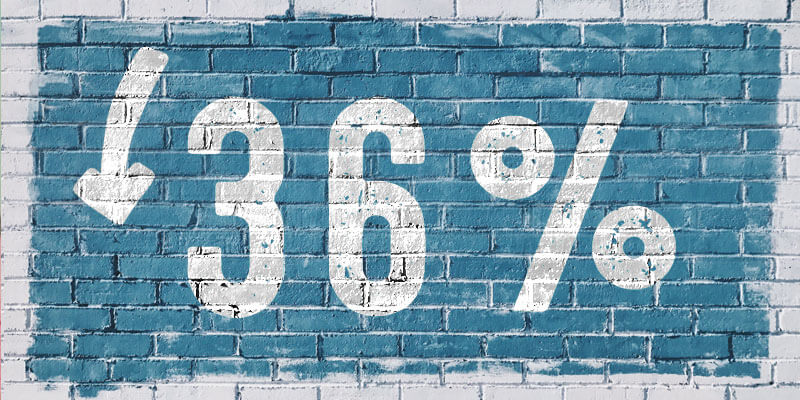A debt-to-income ratio (DTI) is a comparison of your monthly debt payments versus your monthly income. Lenders use this formula to determine how well you manage your monthly debt and your likeliness of repaying a loan.
Debt obligations refer to such things as credit card balances, mortgage payments, rent, condo fees, vehicle loans, insurance premiums and personal loans. Earnings examples include your income (and spouse’s income, if applicable), investment income, alimony or child support and government assistance programs.
What’s a good debt-to-income ratio?
As a rule of thumb, a DTI of 36% or lower is considered good; 37-42% is manageable; and 43% or higher will raise red flags that may significantly impact your chances of qualifying for a mortgage. These figures can vary slightly from lender to lender.
DTI Calculation Example:
Total monthly debt payments = $2,400
Total household income = $6,800 (before taxes)
$2,400 ÷ $6,800 x 100 = 35% DTI
If you fall within the manageable range, your lender may take a closer look at other considerations such as your age or where you live. If, for instance, you’re a millennial just starting out, you’re likely not at your peak earnings level, which may adversely affect your DTI much like it would for someone on a fixed income. Or, if you live in an expensive market, such as Toronto or Vancouver, a higher DTI would be taken into account as your cost of living is higher than in other areas.
A DTI over 50% is cause for concern. Not only will this negatively impact your ability to get a mortgage, but it also indicates that your payments rely on a large portion of your income and you’re spending more money than you can afford. If you’re concerned that your current DTI will hinder your chances of getting a mortgage, take a closer look at your financial situation to see where you can make improvements that will have a positive impact on your DTI.
The most obvious ways of improving your DTI involve either increasing your income or lowering your debt. The more feasible solution, of course, is to reduce your debt. This won’t necessarily be easy, but the sacrifice you make now will pay off in future and could make a world of difference in realizing your dream of homeownership.
Have questions about your debt-to-income ratio or your mortgage in general? Answers are a call or email away!

